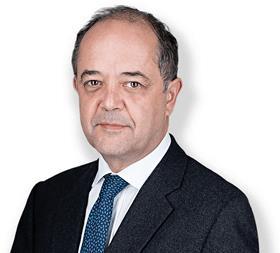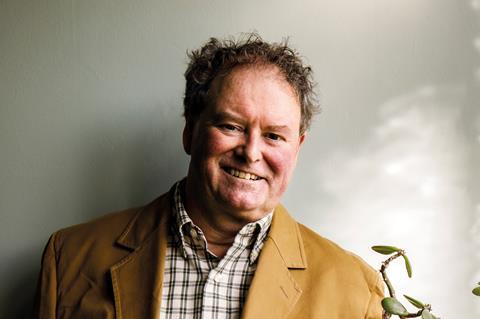The chair of the Bar Council today proposed what eminent media lawyer Mark Stephens CBE hailed as an ‘ingenious’ new deterrent to strategic litigation against public participation (SLAPPs).
Speaking in a personal capacity, Nick Vineall KC suggested those pursuing abusive claims to stifle legitimate criticism and debate should be liable in damages for acting against the public interest. His proposal develops an idea floated in a model anti-SLAPP law published by free speech campaigners last year.
Vineall told a session on SLAPPs at the IBA conference in Paris that the proposal stems from his own experiences at the commercial bar. Practising from 4 Pump Court in London, Vineall also sits as as a deputy High Court judge in the Commercial Court, and Technology and Construction Court.

Taking the microphone during a Q&A session, Vineall said: 'In the commercial sphere, when a client gets an injunction they have to give a cross-undertaking in damages. So that if they’ve cause any harm to the defendant by getting their injunction and it turns out to be unjustified, they will have to pay damages for the harm they do. That is a genuinely offputting feature for some claimants who are perhaps not so sure they have a good claim, utlimately - even if they might get an interlocutory injunction in the meanwhile.
‘So my proposal is this,’ Vineall continued. 'Many SLAPPs cases start, irrespective of cause of action, with what is in effect a threat of an injunction, a threat to silence. It may not actually go to court, but what in substance is being sought is an interim injunction.
'Why can we not have a system in which you have to give a cross-undertaking in damages? So you have a potential liability of damages - not for the damage you caused the defendant, but [for] damage to the public interest. The public interest is damaged by not having access to information which should never have been restrained, while the reputation of the claimant is unjustifiably protected for a period because something which ought to have been said about them is not said for a period of time, and sometimes of course for ever.
'Why not give the court a power in such a case, when it turns out that the injunction or silencing should never have happened, either to award damages based in some way on the damage to the public interest of the pro tem silencing, or perhaps on on a restitutionary basis, based on the unjustified benefit to the claimant during the period of the silence?'
Vineall described his plan as 'theoretically sound', in that it has parallels with what happens in typical commercial injunctions and solves the problem of multiplicity of causes of action. It also 'avoids the difficulties of trying to do this through tweaking professional regulatory rules'.

He concluded: 'Although I am sure this would not be an overwhelming answer, it seems to me it could be a really useful part of the armoury of redressing the balance, which clearly is not in the right place at the moment between plaintiffs and defendants.'
Mark Stephens, who was on the session panel, said Vineall had revealed the plan to him over a ‘glass of champagne’ the night before. 'I have my breath taken away by its ingeniousness,' said Stephens, adding: 'It is a build. It is a real disincentive, if it works in in multiple jurisdictions. It would work in common law jurisdictions, I’m interested in whether it would work in civil jurisdictions.'



























6 Readers' comments